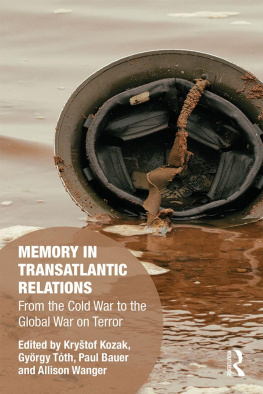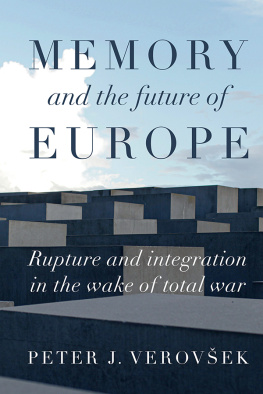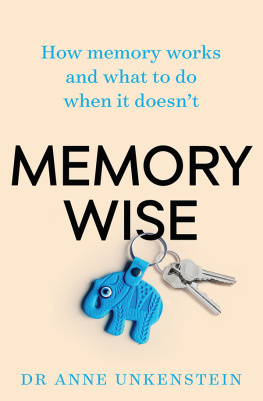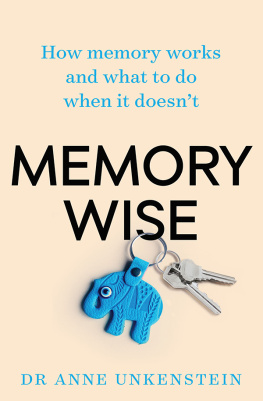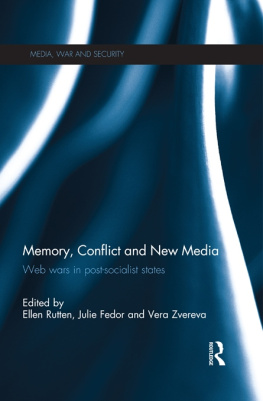Memory in Transatlantic Relations
This volume focuses on the uses of collective memory in transatlantic relations between the United States and Western and Central European nations in the period from the Cold War to the present day. Sitting at the intersection of international relations, history, memory studies and various area studies, Memory in Transatlantic Relations examines the role of memory in an international context, including the ways in which policy and decision makers utilize memory; the relationship between trauma, memory and international politics; the multiplicity of actors who shape memory; and the role of memory in the conflicts in post-Cold War Europe.
Thematically organized and presenting studies centered on the U.S., Hungary, France, the Czech Republic and Slovakia, the authors explore the built environment (memorials) and performances of memory (commemorations), shedding light on the ways in which memories are mobilized to frame relations between the U.S. and nations in Western and Central Europe. As such, it will appeal to scholars across the social sciences and historians with interests in memory studies, foreign policy and international relations.
Krytof Kozk is Head of the Department of North American Studies at the Institute of International Studies, Charles University, Prague, Czech Republic and author of Facing Asymmetry: Bridging the Peripheral Gap in U.S.-Mexican Relations .
Gyrgy Tth is Lecturer in Post-1945 U.S. History and Transatlantic Relations at the University of Stirling, U.K., and author of From Wounded Knee to Checkpoint Charlie: The Alliance for Sovereignty between American Indians and Central Europeans in the Late Cold War .
Paul Bauer is Assistant Professor at the Institute for International Studies, Faculty of Social Sciences, Charles University Prague, Czech Republic.
Allison Lynn Wanger is Visiting Assistant Professor in the American Studies Program at Miami University, Ohio, U.S.
Memory Studies: Global Constellations
https://www.routledge.com/sociology/series/ASHSER1411
Series editor:
Henri Lustiger-Thaler, Ramapo College of New Jersey, USA and
Ecole des Hautes Etudes en Sciences Sociales, France
The past in the present has returned in the early twenty-first century with a vengeance, and with it the expansion of categories of experience. These experiences have largely been lost in the advance of rationalist and constructivist understandings of subjectivity and their collective representations. The cultural stakes around forgetting, useful forgetting and remembering, locally, regionally, nationally and globally have risen exponentially. It is therefore not unusual that migrant memories; micro-histories; personal and individual memories in their interwoven relation to cultural, political and social narratives; the mnemonic past and present of emotions, embodiment and ritual; and finally, the mnemonic spatiality of geography and territories are receiving more pronounced hearings.
This transpires as the social sciences themselves are consciously globalizing their knowledge bases. In addition to the above, the reconstructive logic of memory in the juggernaut of galloping informationalization is rendering it more and more publicly accessible, and therefore part of a new global public constellation around the coding of meaning and experience. Memory studies as an academic field of social and cultural inquiry emerges at a time when global public debate buttressed by the fragmentation of national narratives has accelerated. Societies today, in late globalized conditions, are pregnant with newly unmediated and unfrozen memories once sequestered in wide collective representations. We welcome manuscripts that examine and analyze these profound cultural traces.
Titles in this series:
Memory and Recovery in Times of Crisis
Edited by Fiona Larkan and Fiona Murphy
Holocaust, War and Transnational Memory
Testimony from Yugoslav and Post-Yugoslav Literature
Stijn Vervaet
Reckoning with the Past
Family Historiographies in Postcolonial Australian Literature
Ashley Barnwell and Joseph Cummins
Traumatic Storytelling and Memory in Post-Apartheid South Africa
Performing Signs of Injury
Christopher J. Colvin
Memory in Transatlantic Relations
From the Cold War to the Global War on Terror
Krytof Kozk, Gyrgy Tth, Paul Bauer and Allison Lynn Wanger
Memory in Transatlantic Relations
From the Cold War to the Global War on Terror
Krytof Kozk, Gyrgy Tth,
Paul Bauer and Allison Lynn Wanger
First published 2019
by Routledge
2 Park Square, Milton Park, Abingdon, Oxon OX14 4RN
and by Routledge
52 Vanderbilt Avenue, New York, NY 10017
Routledge is an imprint of the Taylor & Francis Group, an informa business
2019 Krytof Kozk, Gyrgy Tth, Paul Bauer and Allison Lynn Wanger
The right of Krytof Kozk, Gyrgy Tth, Paul Bauer and Allison Lynn Wanger to be identified as authors of this work has been asserted by them in accordance with sections 77 and 78 of the Copyright, Designs and Patents Act 1988.
All rights reserved. No part of this book may be reprinted or reproduced or utilised in any form or by any electronic, mechanical, or other means, now known or hereafter invented, including photocopying and recording, or in any information storage or retrieval system, without permission in writing from the publishers.
Trademark notice : Product or corporate names may be trademarks or registered trademarks, and are used only for identification and explanation without intent to infringe.
British Library Cataloguing-in-Publication Data
A catalogue record for this book is available from the British Library
Library of Congress Cataloging-in-Publication Data
A catalog record has been requested for this book
ISBN: 978-0-415-78854-0 (hbk)
ISBN: 978-1-315-22519-7 (ebk)
Typeset in Bembo
by Deanta Global Publishing Services, Chennai, India
Though passion may have strained, it must not break our bonds of affection. The mystic chords of memory, stretching from every battle-field, and patriot grave, to every living heart and hearthstone, all over this broad land, will yet swell the chorus of the Union, when again touched, as surely they will be, by the better angels of our nature.
Abraham Lincoln, First Inaugural Address to the
U.S. Presidency, March 4, 1861
Contents
Funding for the research was provided by the Grant Agency of the Czech Republic, grant number 14-21581S.
Gyrgy Tth, Krytof Kozk and Paul Bauer would like to express their gratitude for the postdoctoral fellowships and institutional support of the Centre for Collective Memory Research/Centrum pro vzkum kolektivn pameti (UNCE) of the Faculty of Social Sciences at Charles University in Prague.
Gyrgy Tth and Krytof Kozk would like to express their gratitude for the academic residencies, the institutional support and the intellectual community of the International Forum for U.S. Studies at the University of Illinois at Urbana-Champaign.
Gyrgy Tth would like to express his gratitude for the professional assistance provided to him by the diplomat and scholar Dr. Zoltn Fehr.
Krytof Kozk would like to express his gratitude to Barbora Karpetov, Alexandr Vondra and Denisa Krylov for their cooperation.

